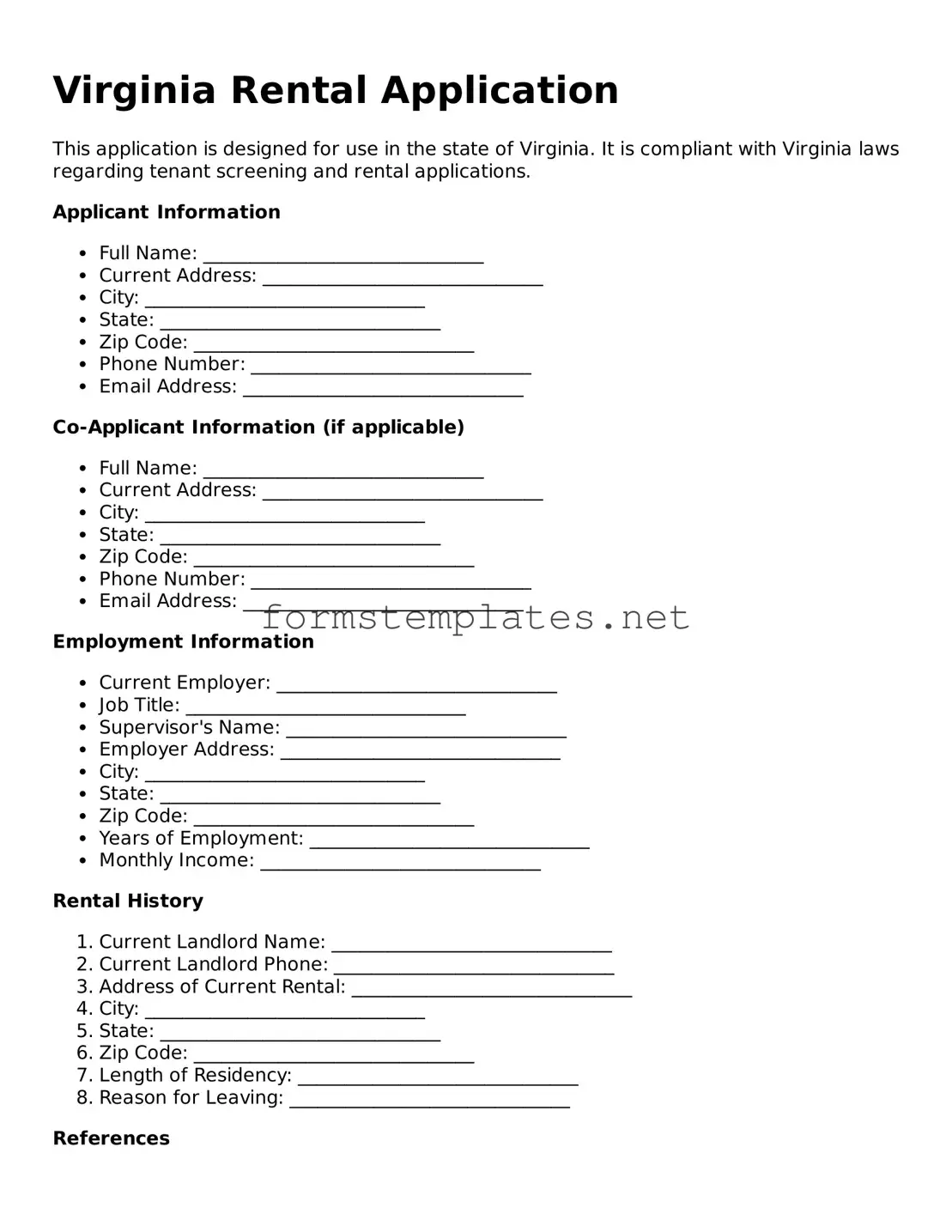The Virginia Rental Application form is a document used by landlords to collect essential information from prospective tenants. This form typically includes personal details, rental history, employment information, and references. It helps landlords assess the suitability of applicants for their rental properties.
Who needs to fill out the rental application?
Any individual who wishes to rent a property in Virginia must complete the rental application. This includes not only the primary tenant but also any co-applicants or roommates who will be living in the rental unit. Providing complete and accurate information is crucial for the application process.
The application generally requests the following information:
-
Full name and contact information
-
Social Security number or other identification
-
Employment details, including income
-
Rental history, including previous addresses
-
References from previous landlords or personal contacts
Additional questions may be included depending on the landlord's requirements.
Is there a fee associated with the rental application?
Many landlords charge an application fee to cover the costs of processing the application. This fee varies by property and can range from $25 to $100 or more. It’s important to clarify with the landlord whether this fee is refundable or non-refundable.
How long does the application process take?
The duration of the application process can vary. Typically, it may take anywhere from a few days to a week for landlords to review applications, conduct background checks, and verify information. Factors such as the number of applicants and the thoroughness of the landlord's review can influence this timeline.
Can I be denied a rental application? If so, why?
Yes, landlords can deny rental applications for various reasons, including:
-
Poor credit history
-
Insufficient income to cover rent
-
Negative rental history, such as evictions
-
Inaccurate or misleading information provided on the application
Landlords are typically required to inform applicants of the reason for denial if requested.
What should I do if my application is denied?
If your application is denied, you can take several steps. First, request a written explanation from the landlord. Understanding the reasons can help you address any issues in future applications. You may also consider improving your credit score, securing a co-signer, or providing additional references to strengthen your next application.
Can I appeal a rental application denial?
While not all landlords have an official appeal process, you can certainly reach out to discuss the denial. Presenting any new information or clarifications may help your case. Some landlords may be willing to reconsider if circumstances have changed or if you can provide additional documentation.
Are there any laws governing rental applications in Virginia?
Yes, Virginia has laws that protect tenants during the rental application process. These include regulations on fair housing, which prohibit discrimination based on race, color, religion, sex, national origin, familial status, or disability. Additionally, landlords must adhere to privacy laws when handling personal information.
What happens after I submit my rental application?
Once you submit your application, the landlord will typically review the information provided. They may conduct background checks, verify employment and rental history, and contact references. After the review, the landlord will inform you of their decision, whether it’s approval or denial.

